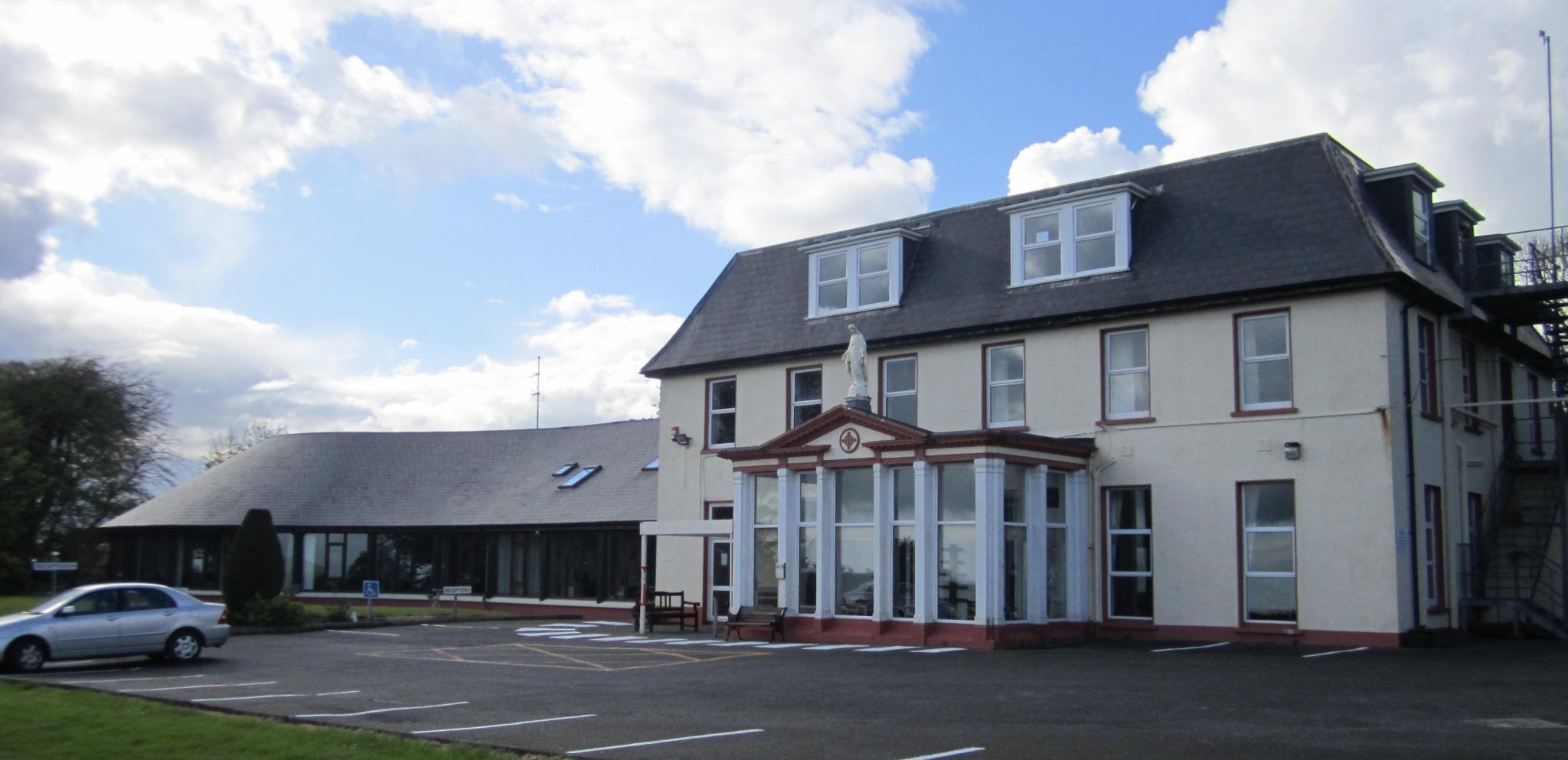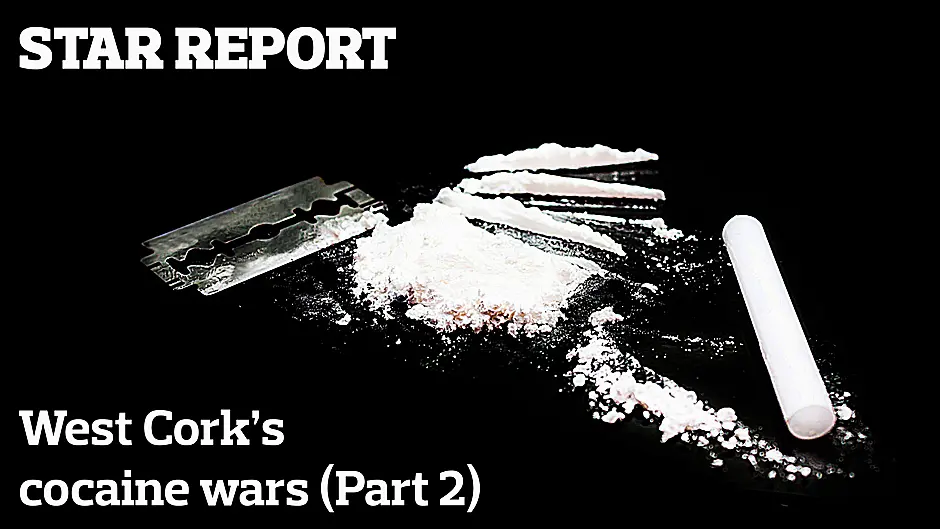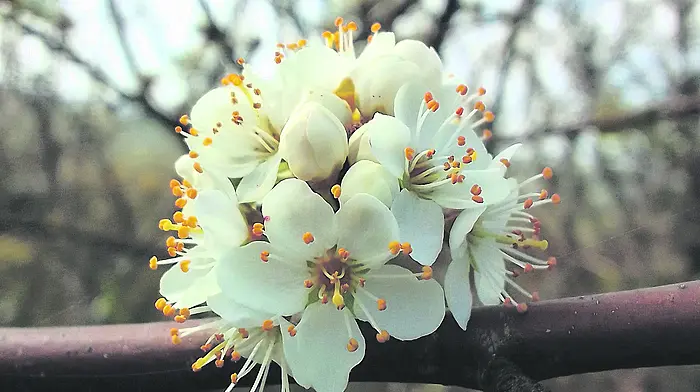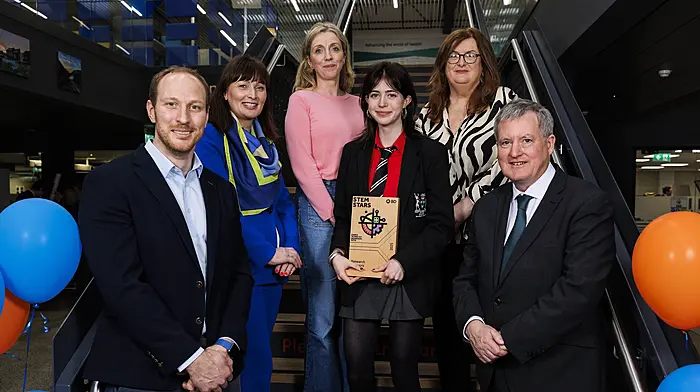Mick Devine of Tabor Lodge treatment centre tells Kieran O’Mahony that too many people have a casual attitude to a very dangerous drug
--
SEEKING treatment for cocaine addiction might seem like a world far removed for many young people who find themselves using the drug recreationally, or have a very casual attitude about the drug.
But according to Mick Devine, clinical director of the Tabor Group – who operate residential addiction treatment programmes at Tabor Lodge in Belgooly as well as Fellowship House in Cork city – the use of cocaine can lead to a slippery slope into addiction.
‘It is a highly addictive drug and we meet the people who have become addicted to it, where their use of it has spiralled out of control and where it’s really gone beyond recreational use,’ Mick explained to The Southern Star.
 Tabor Lodge, above, in Belgooly near Kinsale, treats about 200 people a year for addiction, and half of those are aged between 18 and 35.
Tabor Lodge, above, in Belgooly near Kinsale, treats about 200 people a year for addiction, and half of those are aged between 18 and 35.
‘By the time people get to us, they can’t stop using it. The side effects are very worrying and people are getting into financial difficulties, too, because of the cost of it. There is a lot of money involved and a lot of people would come here because they realise that they have a lot of debt and people are coming after them for money.’
He said that violence and intimidation from drug gangs and the terror involved doesn’t impact on the decisions of those who take cocaine. They would also have seen a link between economic recovery and more young men starting to present themselves to them who were employed, had more money, and turned to cocaine use.
‘What seems to be the dominating factor is that they want to have a good time and cocaine has established itself as part of how you do that, especially if you have the resources. If it stays recreational, like on an odd occasion, people can get their heads around the disadvantages fairly easily and go ahead and use it, and then the trouble follows them afterwards, which is true with most addictions.’
 Mick Devine, of the Tabor Group with James O’Mahony, of An Garda Siochána.(Photos: courtesy Tabor Lodge & Adrian O’Herlihy)
Mick Devine, of the Tabor Group with James O’Mahony, of An Garda Siochána.(Photos: courtesy Tabor Lodge & Adrian O’Herlihy)
Tabor Lodge, which was founded in 1989, offers a standard 28-day residential programme for people with addictions.
As their client base became younger, and situations becoming more complex, they found it necessary to develop a secondary treatment programme at Fellowship House where people can go for a longer stay. This is more like a step down facility that facilitates gradual integration back into society.
‘We treat generally 200 people a year in our residential programmes at Tabor Lodge, and half of those are between the ages of 18 and 35,’ said Mick. ‘One in six of those 200 are asking for help with cocaine.’
He says the younger age group will most likely need to go onto secondary treatment at Fellowship House.
‘That’s because their addiction has interrupted the usual trajectory for a young person, so the 28 days there helps to stabilise them and help them get back on their feet.’
There are also other factors to take into account for those who find themselves addicted to the drug, and those who are not very resilient or resourced in other aspects of their lives may be prone to addiction.
‘Some may have mental health challenges. For example, if people are struggling in other areas of their lives, then cocaine is seen as a temporary reprieve from that unhappiness, and in those cases, people are more likely to become addicted to the drug.’
People can get their heads around the disadvantages fairly easily and go ahead and use it, and then the trouble follows them afterwards
Mick feels that too many people have a casual attitude to the drug and acknowledges that in most cases cocaine users won’t be arriving at the door of Tabor Lodge, because they won’t become addicted.
‘People do succeed in recreational use only, and some people can take it or leave it. There’s often a socio-economic mental health dimension associated with those who go on to become addicted.’
Mick said that usually people come to Tabor Lodge because someone else thinks they should.
‘They come reluctantly themselves, but it’s usually someone else like a judge, probation officer or social worker who thinks it’s a good idea.’
Long term use of cocaine can affect the heart and kidneys and it can also lead to nose tissue damage if they are snorting it through the nose.
‘By the time they present to us, they are usually pretty worried and the situation is out of control.’
Division has 8 CAB profilers
OPERATION Tara was set up in April to ensure that there is a dedicated drugs unit in every garda division.
The numbers and resources will be increased in these units and its aim is to address drug-related intimidation and there is a new emphasis on this.
‘We have already seen an increase in some resources but there wouldn’t be much profile due to the ongoing Covid-19 crisis,’ said Insp Callaghan.
‘But it’s about bringing a level of consistency across the division about drugs, where local units will feed in with the divisional drug units.’
The high profile CAB raids in West Cork earlier this year highlighted the role of the agency in targeting the assets of those suspected to be involved in drug-dealing.
 Pictured at Bandon Garda Station in February is this top of the range vehicle seized by CAB following a search of 21 premises in the greater Bandon area
Pictured at Bandon Garda Station in February is this top of the range vehicle seized by CAB following a search of 21 premises in the greater Bandon area
‘We have eight CAB profilers in the division and we get our members on the ground to nominate people they may consider to be involved in wealth and criminality,’ said Insp Callaghan.
‘What we try to do is target the assets of local drug dealers and the local CAB profilers will examine these people and carry out full backgrounds on these people.’
The best example of this was the CAB operation carried out back in February.
‘That originated from a local CAB profiler and it was over 12 months in the making and there were 22 searches in total across West Cork and into the Tipperary division. There was another CAB raid on a premises in Crookstown.’
He said a search is just the very start of any CAB operation and it involves a very detailed process from there on in. ‘It may lead to seizure orders, tax bills or arrests in relation to money laundering, but that’s down the line and the operation is ongoing.’
Smugglers kept at bay
WITH 435 miles of indented coastline, it’s not surprising that West Cork is seen as a gateway for importing drugs into Ireland.
The region – with its 150 piers – has seen some of the biggest drug seizures in the history of the State, including the €500m of cocaine seized off the yacht Dances With Wolves off the Mizen Head in November 2008.
 Some of the bales of cocaine that were found off Dunlough Bay near Mizen Head in July 2007
Some of the bales of cocaine that were found off Dunlough Bay near Mizen Head in July 2007
The previous July, cocaine worth over €440m was seized from a yacht at Dunlough Bay, close to Mizen Head. The seizure and recovery of 62 bales of cocaine even inspired the film and subsequent TV series The Young Offenders.
The most recent significant cocaine seizure was in September 2014 when €300m of cocaine was found on The Makayabella off Mizen Head.
 The Young Offenders was inspired by the true story of the seizure of €440m worth of cocaine off the coast of West Cork at Dunlough Bay, close to Mizen Head in July 2007
The Young Offenders was inspired by the true story of the seizure of €440m worth of cocaine off the coast of West Cork at Dunlough Bay, close to Mizen Head in July 2007
Coastal Watch – which was re-launched last year – has an important role in preventing drugs coming into the county and involves several stakeholders, including An Garda Síochána, Revenue’s customs service and the Irish Naval Service.
‘That’s where we rely on the public in a lot of coastal rural areas for information and we encourage them to report any suspicious activities – however small – because even between ourselves, the navy and customs, we can’t police it all, it’s so vast,’ said Insp O’Callaghan.
 The Makayabella yacht which had €300m worth of cocaine in it when it was intercepted by drug agencies in September 2014
The Makayabella yacht which had €300m worth of cocaine in it when it was intercepted by drug agencies in September 2014
‘The last big seizure we’ve had in the division was back in 2014 and but we did have the cocaine extraction factory case in Bantry in 2017.’
Read part one of our special report on cocaine use in West Cork here.








